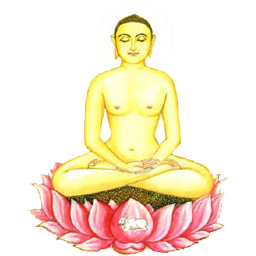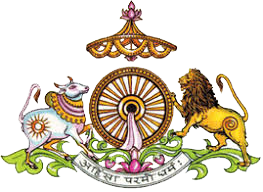जय जिनेंद्र,
यह एप्लिकेशन जिनवाणी की अधिकांश सामग्रियों को ऑफ़लाइन उपलब्ध कराने का एक प्रयास है, ताकि लोग स्वतंत्र रूप से जिनवाणी से प्रेरित होकर पढ़ सकें और सीख सकें।
प्रमुख विशेषताऐं:-
1. आरती
2. भक्ति
3. जिनेन्द्र स्तुति संग्रह
4. चालीसा
5. पूजा
6. स्तुति
7. स्त्रोत्र
8. तीर्थंकर
9. समस्त पूजा अर्घ्यावली
10. दैनिकपाठ
11. प्रार्थना
12. दशलक्षण धर्म
13. णमोकार महामंत्र
14. जाप्य मंत्र
15. स्वाध्याय
16. सम्मेद शिखर कूट पूजन
17. बालबोध पाठमाला
18. भजन
जय जिनेंद्र,
यह एप्लिकेशन श्री भक्तामर स्त्रोत की अधिकांश सामग्रियों को ऑफ़लाइन उपलब्ध कराने का एक प्रयास है।
प्रमुख विशेषताऐं:-
1. भक्तामर स्तोत्र भावार्थ और अर्थ सहित
2. भक्तामर सिद्धि मंत्र
3. भक्तामर महिमा
4. भक्तामर चालीसा
5. भक्तामर स्तोत्र (हिन्दी में)
6. भक्तामर कहानियां
7. भक्तामर विधान
8. भक्तांबर स्तोत्र संस्कृत संपूर्ण ऑडियो
Granth is also know as Sastra. This application is based on Jain Story. It describe or tell you the real Jain Story.
This application is for everyone, some people don't get the time to read hard paper copy "Granths", this application will help them to read "Granths" anywhere and anytime.
प्रमुख विशेषताऐं:-
1. जैन महाभारत प्रसंग ग्रंथ
2. जैन रामायण प्रसंग ग्रंथ
3. समयसार का सार
4. शांतिनाथ चरित्र
5. तत्वार्थ सूत्र
6. दर्शनसार - देवसेनाचार्य
7. इष्टोपदेश
8. आदिपुराण
9. ढाई द्वीप के विद्यमान विस् तीर्थंकर
10. जैन कहानिया
11. बारह चक्रवर्ती
12. रक्षाबंधन
13. तीर्थंकर
14. विद्यमान बीस तीर्थंकर
15. णमोकार महामंत्र प्रसंग कथाएँ
16. सप्तव्यसन से सम्बन्धित कहानियाँ
17. महामुनि सुकुमाल
भक्तांबर स्टूडियो जैन धर्म की अधिकांश सामग्रियों को ऑफ़लाइन उपलब्ध कराने का एक प्रयास है, ताकि लोग स्वतंत्र रूप से जैन धर्म से प्रेरित होकर अपना कल्याण कर सकें, अपनी दिनचर्या सुधार सकें, अपनी आत्मा को मोक्ष मार्ग पर अग्रसर कर सकें, पढ़ सकें और सीख सकें।
॥ णमो अरिहंताणं, णमो सिद्धाणं, णमो आइरियाणं, णमो उवज्झायाणं, णमो लोए सव्वसाहूणं ॥

Jain Application Development
जैन धर्म एप्लीकेशन डेवलपमेंट
Jain - An Introduction
Jainism traces its roots to a succession of 24 Jinas ("those who overcome", or conqueror) in ancient East India. The first Jina is traditionally believed to have been a giant who lived 8.4 million years ago. The most recent and last Jina was Vardhamana (a.k.a. Mahavira, "The Great Hero") He was born in 550 BCE) and was the founder of the Jain community. He attained enlightenment after 13 years of deprivation. In 420 BCE, he committed the act of salekhana which is fasting to death. Each Jina has "conquered love and hate, pleasure and pain, attachment and aversion, and has thereby freed `his' soul from the karmas obscuring knowledge, perception, truth, and ability..."
Jainist Beliefs and Practices
The universe exists as a series of layers, both heavens and hells. It had no beginning and will have no ending. It consists of: The supreme abode: This is located at the top of the universe and is where Siddha, the liberated souls, live.The upper world: 30 heavens where celestial beings live.Middle world: the earth and the rest of the universe.Nether world: 7 hells with various levels of misery and punishmentsThe Nigoda, or base: where the lowest forms of life reside Universe space: layers of clouds which surround the upper world Space beyond: an infinite volume without soul, matter, time, medium of motion or medium of rest.
Everyone is bound within the universe by one's karma (the accumulated good and evil that one has done).
Moksha (liberation from an endless succession of lives through reincarnation) is achieved by enlightenment, which can be attained only through asceticism.
They are expected to follow five principles of living: Ahimsa: "non violence in all parts of a person -- mental, verbal and physical." 3 Committing an act of violence against a human, animal, or even vegetable generates negative karma which in turn adversely affects one's next life.
Satya: speaking truth; avoiding falsehood Asteya: to not steal from others Brahma-charya: (soul conduct); remaining sexually monogamous to one's spouse only Aparigraha: detach from people, places and material things. Avoiding the collection of excessive material possessions, abstaining from over-indulgence, restricting one's needs, etc.
Jains follow a vegetarian diet. (At least one information source incorrectly states that they follow a frutarian diet -- the practice of only eating that which will not kill the plant or animal from which it is taken. e.g. milk, fruit, nuts.)
They often read their sacred texts daily.
Jains are recommended to pass through four stages during their lifetime:
- Brahmacharya-ashrama: the life of a student
- Gruhasth-ashrama: family life
- Vanaprasth-ashrama: family and social services
- Sanyast-ashrama: life as a monk; a period of renunciation
There are two groups of Jains:
- The Digambaras (literally "sky clad" or naked): Their monks carry asceticism to the point of rejecting even clothing (even when they appear in public).
- The Shvetambaras (literally "white clad"): their monks wear simple white robes. The laity are permitted to wear clothes of white color.
Bhaktamar Story
Acharya Sri MANATUNGA (आचार्य श्री मानतुंग )
The Author of भक्तामर स्त्रोत (Bhaktamar Stotra), Acharya Sri Manatunga was a talented scholar, eminent missionary and prodigious ascetic. Each and every word of Bhaktamara reveals his enlightening devotion and infinite faith in the Lord Jina.
In the year 1100 AD there was a great king Bhoja in Ujjain city of Malva. King Bhoja was a learned king of unsurpassed rank and was the author himself of Sanskrit poetry. Great poet Kalidas was one of the members of his assembly Royal Court. One Jain poet Dhananjaya was also becoming famous those days in the city. One day King Bhoj called Dhananjaya in his royal court and get introduced with him and praised him for his poems and wisdom. Shri Dhananjaya told the king very politely that his all wisdom and knowledge was due to his teacher Acharya Mantunga a Jain Muni , he said that all the knowledge is due to the blessings of Acharya Mantunga.
Mantunga
Digambar Jain Acharya Muni Manatunga
(आचार्य श्री मानतुंग )
After knowing about the praise worth Acharya Mantunga, King Bhoj desired to meet with Acharya. King Bhoj ordered his servants to bring Acharya Mantunga to his royal court with honor. At that time Acharya were staying at Bhojpur and doing Tapa (Penance) for self realization - purification. Servants of King Bhoj reached there, prayed Acharya again and again to go with them to meet their King Bhoj. But ascetic saints have no purpose in meeting with King or any other persons. The monk replied, "What I have to do at the royal place? Only those go to the court who are either concerned with it or have committed an offence. Then why should I go as I am an ascetic? So Acharya engrossed in deep Tapa or meditation.
Servants returned to King and told about their failure. The King Bhoj became angry and he ordered to bring the Acharya forcefully in his royal court. Servants do the same and thus Acharya were brought before King Bhoj. The king praised Acharya and requested to give some religious precepts to the audience present there. But up to that time looking unfavorable situations, Acharya decided to remain silent during such conditions. So all the prayers and requests of King were all in vain. The King became angry and he ordered to his soldiers to place the Acharya in prison. Thus Acharya Manatunga was put under arrest in forty-eight chambers under locks and chains.
In the prison Acharya Mantunga entered the heavenly realms of the Lord Adinath and started the prayer of Bhagwan Adinath. He wrote in Sanskrit language a great poem the Bhaktamar Stotra having 48 Stanza (Verse). The chants and prayers of Manatunga were thus in full brim, flowing with the unbound energy of chain-reaction. Due to the effect of Bhaktamar Stotra, Acharya Mantunga no more remained imprisoned. He came out of the locks, and went out of the locks, and went straight out of the prison.
The guards awoke and saw this miracle, but thinking about the self-ignorance, he again closed Acharya in prison and checked the locks firmly. But after sometime locks of prison again opened and Acharya were free again. Seeing this the guards hurried to the king and told him about the event. King came there and he ordered the soldiers to tie Acharya firmly with strong chains and kept in the prison having 48 locks.
Acharya again recited Bhaktamar Stotra and all the 48 locks with chains broken. Acharya automatically came out of prison. Looking this miracle, the whole city assembled around the prison in agitation and admiration. The king had to realize the power of Janism and surrendered completely to the facts. King Bhoj felt down in the feet of Acharya, he pardoned for his mistake again and again. He prayed, "O Excellence! You were constituted of as many ultimate particles as they were full of the peaceful love. This is the the reason for your unparallel and beautiful form in the whole universe."

Our services
We are indie Developer started working on Jain Devotional android applications.
© Copyright BhaktamarStudio